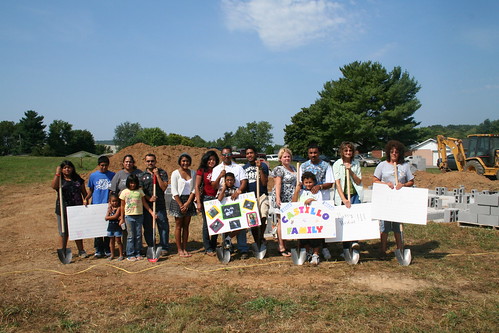Dozens of people gathered in Monticello, Ky., on Wednesday to break ground on a project in which five local families began the process of building their own homes.
Great partnerships can lead to great projects – and this event highlighted several strategic partners that worked incredibly hard to make it happen, including USDA Rural Development, Kentucky Highlands Investment Corporation, Southern Tier Housing Corporation, the Federation of Appalachian Housing Enterprises (FAHE) and the families of Pedro and Omaira Ruiz, Mary and Silvino Castillo, Yvonne Hernandez, Brenda McGuire and Patsy Perdue.

This project began several years ago when Kentucky Highlands received a Rural Development Section 523 Mutual Self Help Housing grant for $250,000 in April 2008. That money was designated for technical assistance to help 12 families that wanted to help build new homes.
The selected families also were approved for Rural Development 502 Direct Loan funds, in addition to forgivable loans from FAHE, to pay for the cost of building the homes.
The self-help housing “sweat equity” concept is not new. Organized self-help housing started with the Quakers a number of years ago. This became a tradition of rural people, who had the determination and help of neighbors, to construct barns, homes and schools that became American’s rural communities.
The Section 523 program is used primarily to help very low and low-income households build their own homes and is targeted to families who are unable to buy clean, safe housing through conventional methods.
Families participating in a mutual self-help project perform approximately 65 percent of the construction labor on each other’s homes under qualified supervision, and the reduced labor costs make it easier for the families to own a home. Another great advantage of this program is that mortgage payments can be “rolled into” the loan for families who can’t afford to make them while the house is being built.



